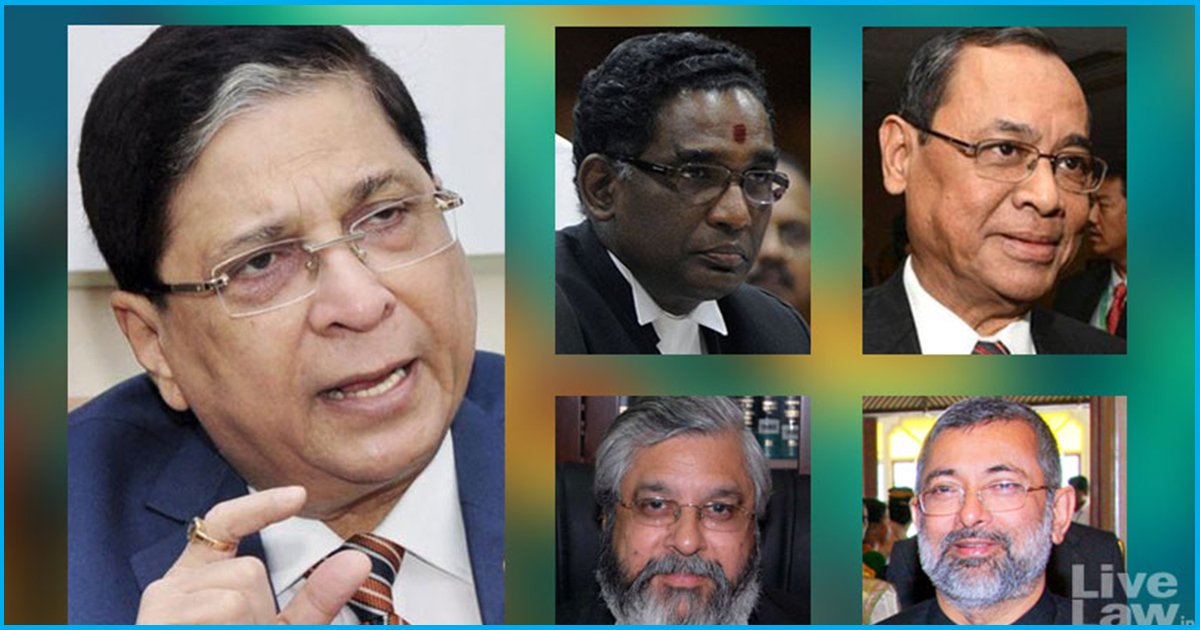
SC Collegium Proceedings To Be In The Public Domain: A Step Towards Transparency
Giving in to the rising pressure about transparency regarding the appointment and transfer of judges, the Supreme Court Collegium has for the first time ever, decided to place its decisions into the public domain.
The Supreme Court website currently consists of recommendations regarding appointments to the High Courts of Kerala and Madras. The documents shall contain the deliberations of the collegium about every person recommended for elevation by the High Court.
Along with this, it shall also have the opinions of other Supreme Court Judges familiar with the functioning of the High Court as well as record the remarks of the Information Bureau on the candidate.
The decision for making the deliberations of the collegium public has been published on the website. The resolution that aims to bring about transparency was signed by CJI Dipak Misra, Justice Chelameswar, Justice Gogoi, Justice Lokur and Justice Joseph.

The background
It is interesting to note that Justice Chelameswar had refused to attend collegium meetings as long as they were not out in the open for the public to know.
In October 2016, Justice Chelameswar was the lone dissenting judge when a five-judge bench of the Supreme Court decided on the National Judicial Appointments Commission (NJAC) Act.
The Act provided for a six-member panel, comprising the CJI, two Supreme Court judges, the Union law minister and two eminent persons, to appoint judges to the Supreme Court and the High Courts.
While the other four judges favoured the Collegium system, Justice Chelameswar argued that total elimination of the government from the selection process is against the democratic principles that the country upholds.
“Transparency is a vital factor in constitutional governance. Transparency is an aspect of rationality. The need for transparency is more in the case of the appointment process. Proceedings of the Collegium were absolutely opaque and inaccessible both to public and history, barring occasional leaks,” Justice Chelameswar had written in his verdict.
Justice Chelameswar had opined that decisions to appoint should be taken by circulation. Why a person is selected or not should be on record. If someone has changed one’s mind on an appointee, the reasons should be known.
The Court has accepted the recommendations as put forward by Justice Chelameswar and shall henceforth make sure that the collegium members to record their reasons in writing for approving or rejecting a recommendation.
The Logical Indian community welcomes the move whereby the decisions of the Supreme Court Collegium would be available in the public domain.
The entire resolution can be read here.
 All section
All section













